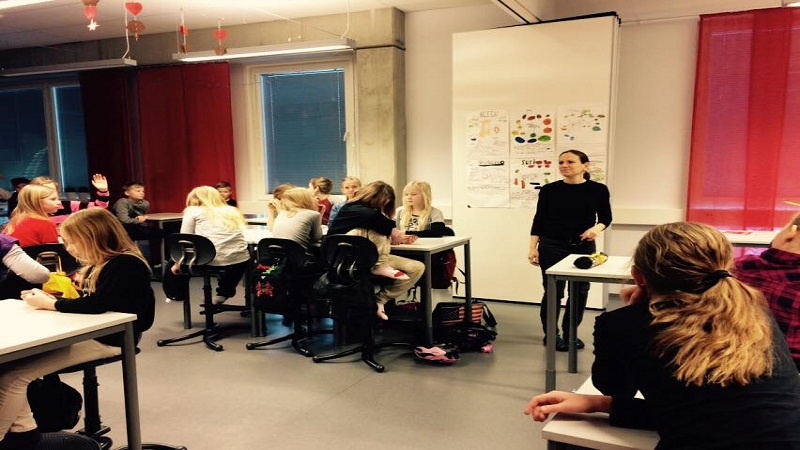Today’s professionals must make a conscious effort to strike a balance between life and work if they want to steer clear of burnout. The demands of a competitive market and ambitious career paths can be relentless. The rise of online learning means that more and more people are studying while working—anyone embarking on further education alongside work deserves applause; they must dig deep and display resilience, dedication, and steely determination.
According to the Pew Research Center, 63% of professionals have progressed through further education modules to expand their knowledge and upskill while working. For example, nurse assistants who wish to qualify as registered nurses often acquire the relevant qualifications online while working full-time.
Enrolling in an accelerated nursing program online from a reputable institution, such as Rockhurst University, opens up excellent future job prospects. Studying alongside full-time work can be demanding, and maintaining a good work-life balance is essential. Maintaining this balance requires excellent time management, a good amount of rest and leisure time, and a commitment to self-care. Managing them is crucial. Excellent time management, a good balance between work and rest, and optimal self-care will clear the path for a successful outcome.
Methods for balancing work and study
From the outset, you must remember that you now have three areas of responsibility. The first responsibility is to yourself and your loved ones, the second is to your job, and the third is to your studies.
You must dedicate time and energy to all three. Doing so can be difficult, but the tips below will help ensure you balance your commitments effectively.
Implement time management techniques
At the start of every week, you must overview your work, study, and social commitments. You must then allocate adequate time to each to complete any necessary tasks without neglecting any of your three focus areas.
You must also be wary of special commitments such as family events or coursework deadlines. Plan ahead to ensure that you are not caught out.
Pomodoro against procrastination
Procrastination destroys any chance of successfully managing life, work, and online study. Whatever you put off tackling will come back to bite you. Maximize the convenience and flexibility of online education by scheduling your study, work, and social commitments effectively.
The Pomodoro technique employs a timer that sets out short study segments followed by short breaks. It breaks your work and study load into more manageable tasks while ensuring you take regular breaks and helps mitigate the temptation of procrastination.
Be aware of optimal study times and environment
When you start studying, pay attention to the times and places that create a suitable learning environment. It’s important to eliminate all distractions and determine where and when you study best.
Practice solid study habits
Right from the start, endeavor to build good study habits, meaning you create a routine that allows you to study productively and consistently. Practicing solid study habits includes using the Pomodoro technique and allocating your time effectively.
Seek support if you need it
Don’t be afraid to seek help or support from co-workers, superiors, and your loved ones. Rather than suffering in silence, speak up and seek help on how to manage your task load better.
Your well-being and productivity are in everyone’s interest, so never shy away from admitting any issues you encounter. Instead, build a support network and communicate your needs. Talk to fellow students, lean on the support of your superiors, and always let your loved ones know how you are doing.
Focus on family and downtime for improved productivity
Setting boundaries and ensuring you spend solid blocks of time relaxing and enjoying yourself with families and friends is crucial. Spending adequate time with family and having downtime improves job satisfaction and productivity both at work and in your studies.
Science backs this theory, with a US study concluding that tech professionals experienced greater job satisfaction while producing much better outcomes for employers when enjoying sufficient family time. The research also highlighted the importance of spirituality in ensuring worker well-being.
Holistic self-care
Caring for your body, mind, and spirit is a prerequisite for job and education success. Make sure you eat a healthy diet and get enough exercise while also caring for your mental health. If you feel unwell, seek professional help immediately.
Keeping a journal can be a simple way of managing your mental health and staying abreast of your to-do list.
Self-care also means pursuing your hobbies and interests. So, if you enjoy playing the guitar, keep strumming, and if surfing is your thing, make sure to hit the waves regularly. Hobbies and activities you enjoy can help break the stress cycle and recharge your mental, physical, and emotional batteries.
Establishing boundaries to avoid multitasking
The temptation to multitask is likely strong but will create many problems. You may think finishing an assignment while on your lunch break is a good idea, but you will likely soon discover that multitasking does not work. Juggling two or more tasks at a time means that you can’t apply yourself completely to any of them.
The same applies to studying while caring for your children. Your best bet is to set strict boundaries, focusing on taking care of one area at a time only, be that work, family, or learning.
Study partners and accountability coaches
Many professionals find working with study partners or hiring an accountability coach helps keep them on track. Collaboration delivers natural checkpoints, thus improving your discipline and lightening your load. You then have someone by your side, making sure you complete your tasks efficiently and effectively.
Setting the right priorities and eliminating time wasting
When juggling family, leisure, work, and education, you must set priorities. You must quickly learn that your busy schedule doesn’t allow for time-wasting. It can be useful to keep a note of your scheduling week by week, dividing tasks into two simple categories: necessary and unnecessary. This ensures that each week, you improve by focusing on your top priorities and must-dos while placing less emphasis on low-priority tasks. Discipline is essential when balancing life, work, and further education.








